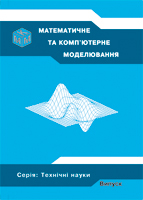Аналіз вимог та моделей безпеки для постквантової криптографії
DOI:
https://doi.org/10.32626/2308-5916.2017-15.192-197Анотація
Сформульовані проблеми та ризики класичних систем в галузі криптографічного захисту інформації у зв’язку із розвитком квантових обчислень. Обґрунтована задача необхідності пошуку нових рішень. Доповідь містить аналіз останніх вимог, які були висунуті двома найпотужнішими організаціями зі стандартизації: NIST та ETSI відносно криптографічних алгоритмів у пост квантовий періодПосилання
NISTIR 8105 (DRAFT) Report on Post-Quantum Cryptography.
NISTIR (DRAFT) Proposed Submission Requirements and Evaluation Criteria for the Post-Quantum Cryptography Standardization Process.
ETSI GR QSC 001 V.1.1.1 (2016-07). Quntum-Safe Cryptography (QSC); Quantum-safe algorithmic framework.
Lindell, Y.: A Simpler Construction of CCA2-Secure Public-Key Encryption Under General Assumptions. In: Biham, E. (ed.) EUROCRYPT 2003. LNCS, Vol. 2656. P. 241–254. Springer, Heidelberg (2003).
Nojima R., Imai H., Kobara K., Morozov K.: Semantic security for the mceliece cryptosystem without random oracles. Des. Codes Cryptography 49(1-3), 289–305 (2008).
Faust S., Kiltz E., Pietrzak K., Rothblum G. Leakage-resilient signatures, Cryptology ePrint Archive: Report 2009/282, June, 2009, http://eprint.iacr.org/2009/282.
Madeline Gonzaґlez Mun˜iz, Rainer Steinwandt: Security of signature schemes in the presence of key-dependent messages. In Tatra Mt. Math. Publ. 47 (2010), 15–29.
##submission.downloads##
Опубліковано
Номер
Розділ
Ліцензія
Authors who publish with this journal agree to the following terms:- Authors retain copyright and grant the journal right of first publication with the work simultaneously licensed under a Creative Commons Attribution License that allows others to share the work with an acknowledgement of the work's authorship and initial publication in this journal.
- Authors are able to enter into separate, additional contractual arrangements for the non-exclusive distribution of the journal's published version of the work (e.g., post it to an institutional repository or publish it in a book), with an acknowledgement of its initial publication in this journal.
- Authors are permitted and encouraged to post their work online (e.g., in institutional repositories or on their website) prior to and during the submission process, as it can lead to productive exchanges, as well as earlier and greater citation of published work (See The Effect of Open Access).

